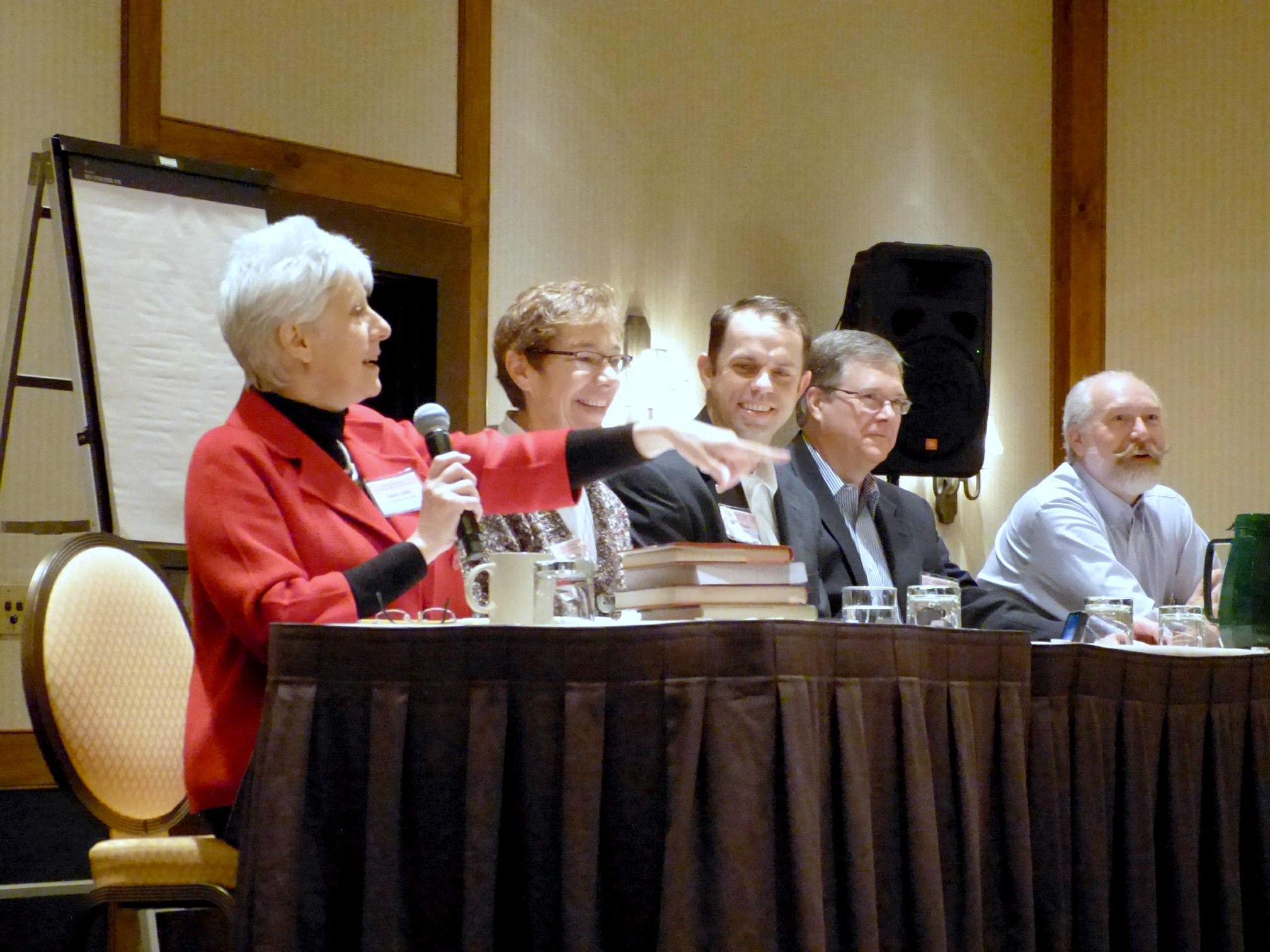Faculty and administrators from across campus recently gathered at the UGA Teaching Academy’s 23rd annual Academic Affairs Faculty Symposium to discuss student learning and suggest ideas for enhancing the learning environment at the university.
The event, which is sponsored by the provost’s office, examined current and emerging teaching formats. The 64 participants discussed ideas for improving learning outcomes at UGA in breakout groups focused on one of five topics: large residential classes; online learning; field-based and experiential learning; labs, studios and seminars; and mentoring and advising.
“The recommendations from these symposia often lead to major changes on this campus,” said Joe Broder, associate dean for academic affairs in the College of Agricultural and Environmental Sciences and chair of the symposium planning committee. He noted that the Office of Service-Learning, Office of Online Learning and Teaching Academy Fellows program originated from previous symposia.
At a panel discussion on instructional support available to faculty, participants shared strategies for enhancing teaching. Among the recommendations were creating informal faculty groups that meet regularly to share best practices, establishing mentoring partnerships and auditing classes in the College of Education. Institutional-level opportunities include workshops and support provided by the university’s Center for Teaching and Learning, events hosted by the Teaching Academy and fellowship programs available through the Office of Service-Learning, CTL and Teaching Academy.
At the end of the two-day symposium, representatives of the five breakout groups shared their preliminary recommendations, with formal recommendations due to the provost this month.
Among the preliminary recommendations were the establishment of a task force to help identify and implement best practices in the renovation of instructional spaces, the creation of one credit hour courses on professional development for graduate students and the development of a fellows program to enhance large-classroom instruction.
Provost Jere Morehead noted that he has attended 21 of the 23 symposia that UGA has held. Morehead, who assumes the presidency on July 1, added that he plans to attend significant portions of future symposia as his schedule permits.
“One of the most important things you can do in the job I’m about to assume is to stay connected with faculty,” Morehead said, “and this event and others like it provide valuable opportunities to share and discuss ideas for advancing the academic mission of the university.”


